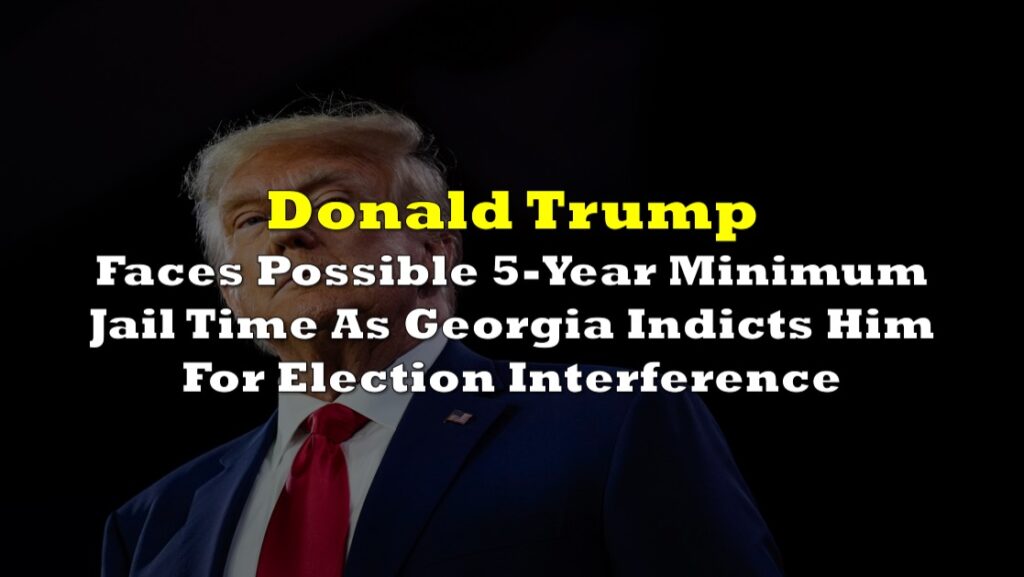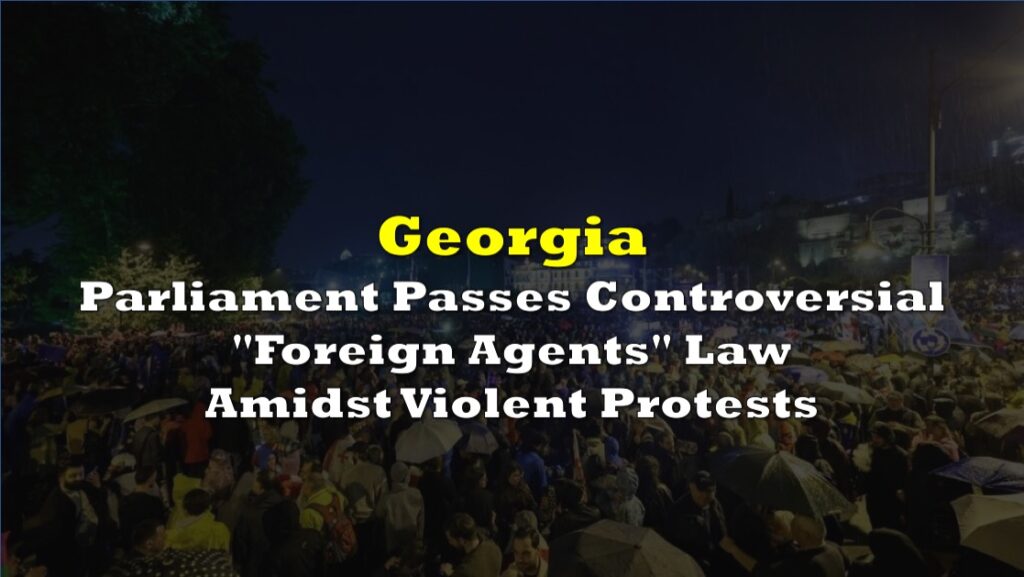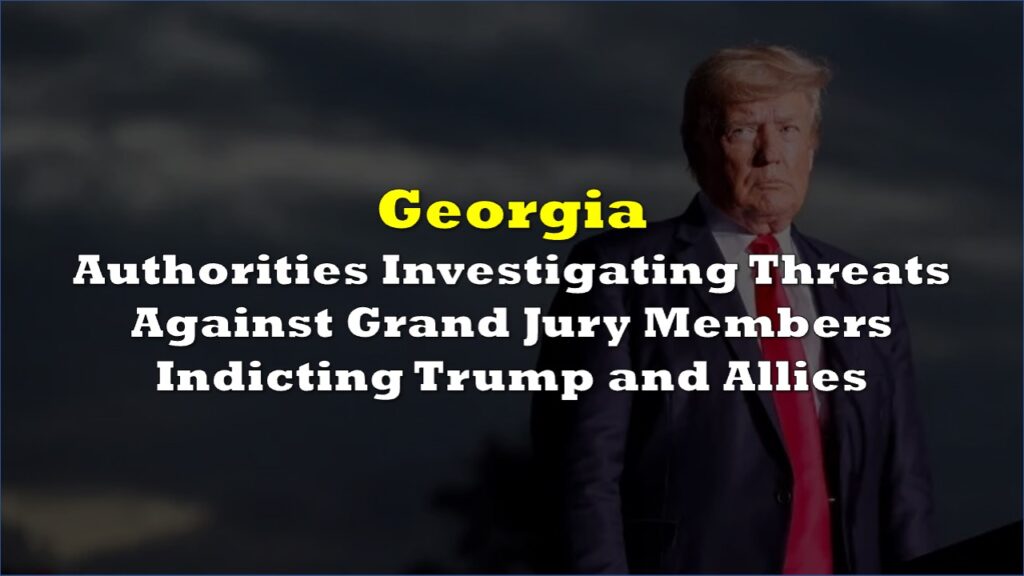Georgia’s ruling Georgian Dream Party has officially withdrawn the proposed “foreign agents” bill after tens of thousand of citizens protested at the country’s capital, Tbilisi. The much-criticized legislation was feared to drive a much larger divide between the Caucasian nation and Europe.
Surprise development in 🇬🇪#Georgia this morning: the government has withdrawn its 🇷🇺#Russia-inspired law against dissent in the face of massive 🇪🇺pro-EU demonstrations in the capital Tblisi. https://t.co/OUSF5YvljE
— Dave Keating (@DaveKeating) March 9, 2023
The Georgian Dream Party has Officially Withdrawn the “Foreign Agent” Bill which had caused Civil Unrest and Protests across the Georgian Capital of Tbilisi over the last 2 nights.
— OSINTdefender (@sentdefender) March 9, 2023
The latest protest took place on Wednesday, a day after the law was passed in its first reading in parliament. On Tuesday evening, at least 66 people were arrested when protests over the proposed legislation turned violent.
What is this “foreign agents” bill?
The draft law “On Transparency of Foreign Influence” purportedly aims to disclose money flows from abroad, but critics feared it would be used to crack down on opposing views as it stipulates organizations such as media outlets might be labeled as “foreign agents” if they get more than 20% of their money from overseas.
The ruling Georgian Dream Party stated that the legislation was simply intended to foster greater transparency regarding foreign donations and was influenced by a 1938 US law. Yet, detractors claim that it echoes a contentious law in neighboring Russia that serves as the foundation for draconian restrictions and obligations on organizations and individuals with international relations.
Georgia’s former education minister, Ghia Nodia, told Al Jazeera that the law was likely to impede journalistic freedom in a country where the government controls a big portion of the media.
“A large part of independent media in Georgia gets outside support. The government says that it’s just for transparency but this draft law models the Russian law, and in Russia, the legislation was a step towards repressing independent media,” he said.
Georgia Prime Minister Irakli Garibashvili, who is also the chair of Georgian Dream Party, the government’s and parliament’s largest party, has defended the measure, claiming it will help ferret out individuals working against the country’s and the powerful Georgian Orthodox Church’s interests.
According to Georgian news outlets, he has also accused Georgia’s “radical opposition” of inciting protestors to commit “unprecedented violence” during Tuesday’s marches.
However, Georgia President Salome Zourabichvili addressed demonstrators and assured them of her support. The pro-European leader claimed that parliamentarians who voted for the draft law violated the Constitution, and vowed to reject it if it passed.
Tens of thousands of Georgians took to the streets, arguing that the new bill will limit the country’s liberties. On Wednesday afternoon, protests resumed for a second day with a march to commemorate International Women’s Day, which is a public holiday in Georgia.
Demonstrators carried Georgian and EU flags down the central Rustaveli Avenue towards parliament. Protesters blocked both entrances to the parliament building, yelling, “No to Russian law!”, “Russians!”, and “Slaves!” People assembled outside the parliament building were dispersed overnight by police using water cannons and tear gas.
The police in Tbilisi, Georgia 🇬🇪 have gone on the offensive against the pro-EU 🇪🇺, anti-Russian 🇷🇺 protestors.
— Jason Jay Smart (@officejjsmart) March 8, 2023
All of Rustaveli Avenue is flooded with tear gas. pic.twitter.com/NtrnmkMm9s
Georgian Riot Police and Special Forces have managed to push the Protestors away from the Parliament Building in the Capital of Tbilisi, with them currently attempting to disperse the remaining Crowds in the Central Square with Tear Gas, Water Cannons, and Flash Bangs. pic.twitter.com/Fh03bN371n
— OSINTdefender (@sentdefender) March 8, 2023
A huge new pro-EU protest officially started in front of the Georgian Parliament in Tbilisi 2 minutes ago.
— Visegrád 24 (@visegrad24) March 8, 2023
All eyes on Georgia tonight.
🇬🇪 pic.twitter.com/D1faRFHzLg
It is reported that protesters in Tbilisi were forced out from the central Rustaveli Avenue by special forces.
— Anton Gerashchenko (@Gerashchenko_en) March 8, 2023
We stand with the people of Georgia in their fight for freedom. pic.twitter.com/g6hvnbHPdU
Sixty-six arrests were made at the demonstration on Tuesday evening, including the leader of the opposition Zurab Japaridze, while 50 police officers were hurt.
Information for this briefing was found via AlJazeera, CNN, EuroNews, The New York Times, and the companies mentioned. The author has no securities or affiliations related to this organization. Not a recommendation to buy or sell. Always do additional research and consult a professional before purchasing a security. The author holds no licenses.









